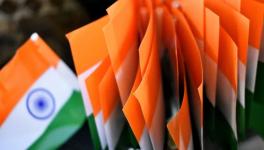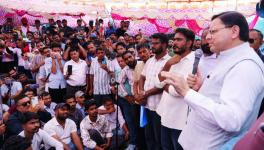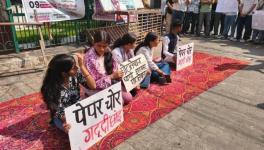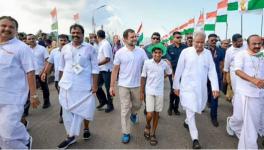NYAY Scheme Might Dismantle Public Distribution System
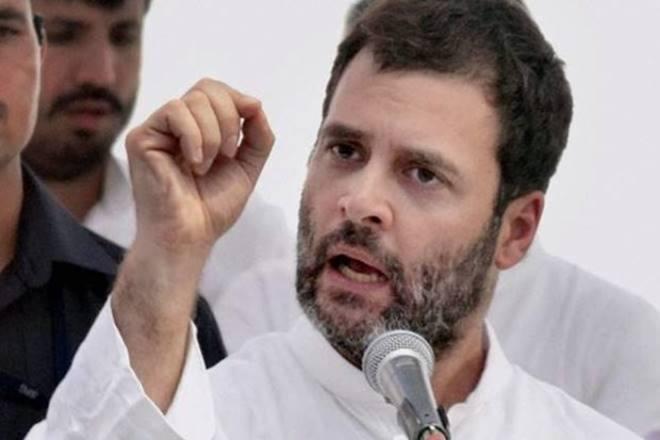
Image Courtesy: Financial Express
On Monday, March 25, the Congress party announced a minimum income support scheme of Rs. 72,000 per annum to 20% of India's poorest families if voted back to power. The scheme would be called “Nyoontama Aay Yojana, or NYAY,” said party President Rahul Gandhi.
This is not an entirely new idea. In the Economic Survey 2016-17, the then-Chief Economic Adviser Arvind Subramanian presented a Universal Basic Income (UBI) scheme as a “radical new vision” for uplifting the poor. However, Subramanian made an important observation:
“A number of implementation challenges lie ahead, especially the risk that UBI would become an add-on to, rather than a replacement of, current anti-poverty and social programs, which would make it fiscally unaffordable. But given their multiplicity, costs, and questionable effectiveness, and the real opportunities afforded by the rapidly improving ‘JAM’ infrastructure, UBI holds the prospects of improving upon the status quo.”
Subramanian’s argument has been reiterated several times since Monday. An editorial in the Economic Times noted that the NYAY scheme can be useful only if all subsidies and welfare programmes like the Mahatma Gandhi National Rural Employment Guarantee Scheme are rolled into one. A piece in the Indian Express quoted Devendra Kumar Pant, chief economist, India Ratings, arguing that “both income support scheme and subsidies cannot co-exist since it would create huge pressure on government’s fiscal situation.”
Also Read: Why Universal Basic Income is Fraught With Serious Problems
In the absence of any clear policy framework proposed by the Congress, it is likely that the NYAY scheme, if implemented, would replace the existing welfare programmes, amongst which the worse hit would be India’s public distribution system (PDS), which includes delivery of wheat, sugar, rice and kerosene to poor households; mid-day meals for school-going children ages 6–14 years under the Mid-Day meal scheme; and meals for children between 6 months and 6 years, and pregnant and lactating women under the Integrated Child Development Services scheme.
The Role of the ‘Inefficient’ PDS
Arguments against the PDS are mostly related to leakages. The Economic Survey, quoted above, also noted that “out-of-system” leakage is “a feature of PDS schemes” and UBI would overcome these problems by “circumventing layers of bureaucracy.” Thus, it is likely that the axiom of public-sector inefficiency would be used to replace the PDS with the income support scheme through cash transfers into bank accounts.
But these arguments overlook the material realities around which the PDS works in a country like India. Take, for instance, our gender norms. According to media reports, money under the NYAY scheme would be directly deposited into the accounts of women of the households. But the distribution of both money and food in most Indian households is controlled through strong gender biases. Women lack agency in matters of keeping and spending money. It is often the men of the household who make monetary decisions. For instance, in a 2005 discussion paper by the World Bank (which, interestingly enough, emphasises on the leakages in the ICDS scheme), the authors note:
“Women in South Asia tend to have lower status and less decision-making power than women in Sub-Saharan Africa. This limits women’s ability to access the resources needed for their own and their children’s health and nutrition, and has been shown to be strongly associated with low birth weight, as well as poor child feeding behaviours in the first twelve months of life.”
Also Read: Meagre 0.01% Increase in Budget Allocation for Children, Says Report
This point was reiterated in a June 2016 report by the Oxford Policy Management Limited which sought to test the efficacy of the Bihar Child Support Programme, a pilot conditional cash transfer programme implemented by the state government in two blocks of Gaya District, Bihar. The authors note that additional cash into the bank accounts of women had little or almost no impact on the decision making powers of the women within their households. The report highlighted:
“Recipients of the programme who lived in joint families, with their mother and father in-law and husband said that even the decision on when to withdraw and spend the BCSP payment was often made as a family. This was in the same way decisions to spend money earned by any family member was made, in consultation with the ‘guardians’ of the family and not individually.”
In addition to these gender norms, there is the issue of inaccessibility to banks. Writing on the idea of cash transfers in lieu of the PDS, Harsh Mander argues that “there are ... worries about how genuinely inclusive of people in remote rural areas is India’s banking system.” Since Fair Price Shops/ration shops exist in most villages, they are generally more accessible as compared to banks. Mander notes that distances to banks are much longer in remote regions, thus entailing higher additional costs of transport and time. This has been similarly argued in the process monitoring study of a 2015 Direct Benefit Transfer (DBT) pilot programme in Chandigarh, Puducherry, and Dadra & Nagar Haveli. The study by the Abdul Latif Jameel Poverty Action Lab (J-PAL) concluded that while those who use ATMs to access cash spend less time and money on DBT and market purchases than under the PDS, it costs beneficiaries more, both in terms of time and money, to travel to banks to access cash and markets to use cash than in collecting food rations.
Also Read: Direct Benefit Transfer has Virtually Failed in PDS
Adding to these two realities is the concern that cash transfers might not always match up to market prices, which are constantly fluctuating. This reflects especially in food entitlements. For instance, Dipa Sinha argues that “experience with cash transfers, be it old-age pensions or scholarships for needy children, show that it is never inflation indexed. This would mean that entitlement in the form of cash transfers would fail to keep pace with the rising food prices.” Currently, beneficiaries under ICDS get take-home rations and home-cooked meals without the worry of inflationary trends in the market. Any replacement would erode the purchasing power of the beneficiary in the face of rising prices.
Way Forward
The NYAY scheme would be mere eyewash if it dismantles the existing PDS. In fact, it would possibly make the poor even more vulnerable by virtue of social barriers and market price fluctuations. In this context, one way in which the state can raise resources for the scheme to work without replacing the existing welfare schemes is to raise direct taxes on the rich through, say, increasing the wealth tax supplemented by an inheritance tax, as argued by Prabhat Patnaik. But this would obviously be opposed by the big capitalists – both national and foreign – on whom the national parties so dearly depend for funding and whose agenda they carry forward in the Parliament once voted to power.
It is also worth asking as to why the Congress hasn’t promised to increase the dismally low budgetary allocations for health and education. What would the poor do with the money if the nearest government hospital is out of doctors, beds and medicines? They would be forced to go to a private hospital. The NYAY scheme wouldn’t address the rot in the system unless it goes hand-in-hand with free, universal public health, education, and a robust PDS. But in a system where political parties source their funds and agenda from the corporate-financial oligarchy, such an implementation of the NYAY scheme seems highly unlikely.
Read More: 42 Starvation Deaths in 2 Years, Campaign Demands Food for Everyone
Manas Raturi is a PhD Scholar in Sociology at the School of Liberal Studies, Ambedkar University Delhi.
Get the latest reports & analysis with people's perspective on Protests, movements & deep analytical videos, discussions of the current affairs in your Telegram app. Subscribe to NewsClick's Telegram channel & get Real-Time updates on stories, as they get published on our website.














